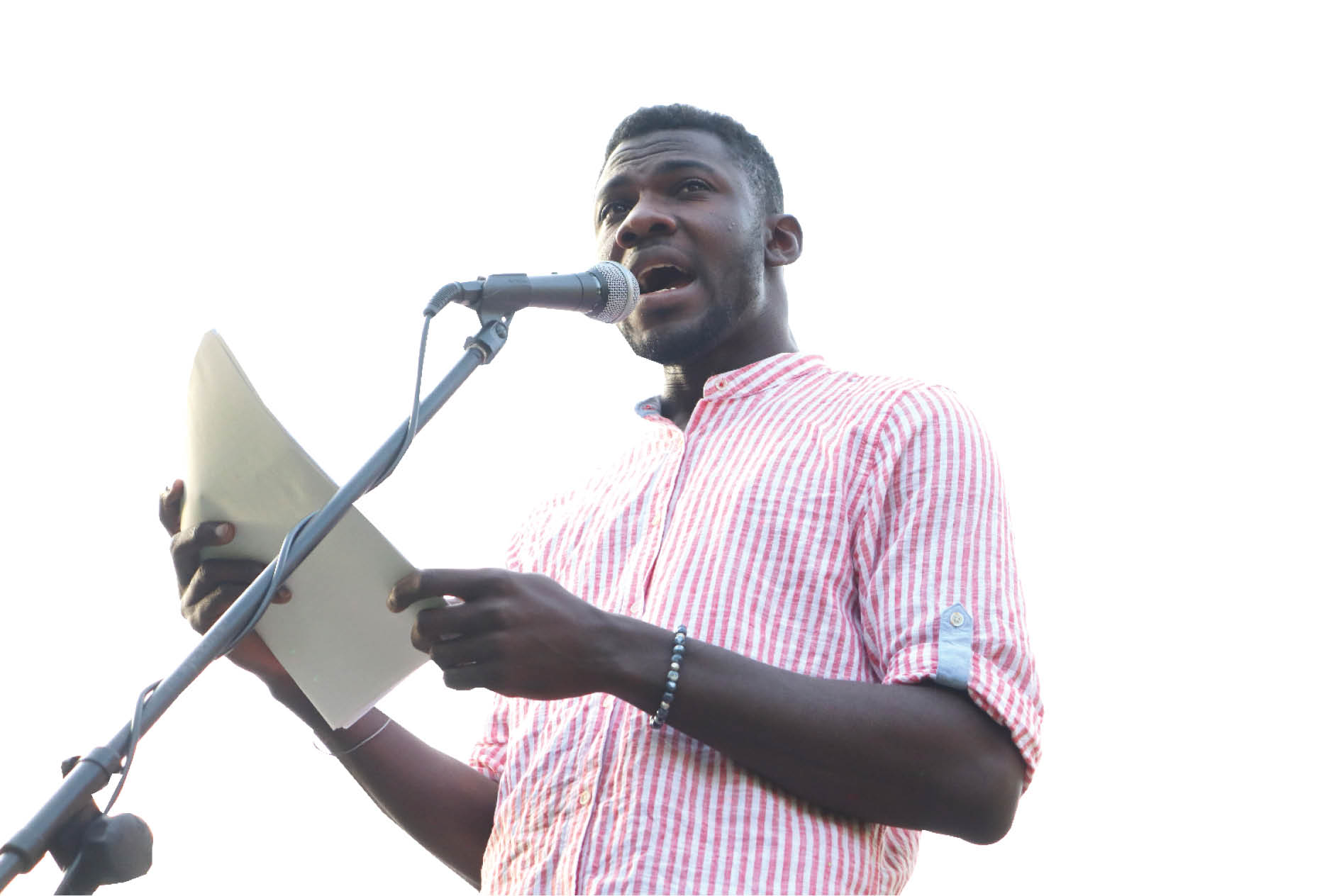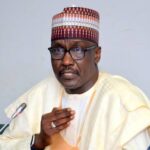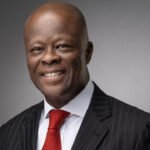David Ishaya Osu is a poet, memoirist, editor and street photographer. He is the poetry editor for Panorama: The Journal of Intelligent Travel, and a board member of Babishai Niwe Poetry Foundation based in Uganda. He has an MA in Creative Writing with distinction from the University of Kent, UK. He is the author of the chapbooks, ‘When I’m Eighteen’ (2020) and ‘Once in a Blue Life’ (2020). Here, he talks about his approach to art, and more.
Bookshelf: Your latest book, ‘Once in a Blue Life’, was recently published. What prompted the mix of poetry, flash memoirs and street photographs?
David Ishaya Osu: Turning twenty-nine was the major prompt. Why not mix a birthday present for my readers, I thought. A mix of flash personal stories, perspectives and visuals shot in several cities. I am not limited by generalisations; so, I find myself mixing genres, stretching, bending genres, and even cutting away from genres. A single book has the capacity to be many things, so why not make a being of multiple amazing personalities out of the book? I am permanently keen on the many possibilities of a book.
Bookshelf: What is it like being a poet, memoirist, street photographer and editor? Which do you find yourself most drawn to and why?
Osu:I like to think that it does not feel any different from how a chef feels from making a delicious meal. They always must mix ingredients. Or a police officer in his uniform driving and trying to track a scene. Or my geologist father who travelled around for research and conferences and made good friends with people. What I am trying to say is that, every single existence is multifaceted and multi-layered. I am drawn to the poetry, the beauty, the splendour, in people, in things, in places. The poetry in running water, in dead leaves, in rusty sheets, in fresh dimples. The poetry in broken languages, in vernacular expressions; the beauty in everyday life, in ordinary things, in seemingly meaningless things. When I go out to photograph streets, I am going out to listen to life anew; to watch and appreciate life anew. Sometimes poems and memoirs come out of my wanderings, other times the pure experience of walking and watching needs no verbal or textual or pictorial presentation. I would say that I am drawn to and driven by the effervescence of life.
Bookshelf: What inspired your poetry chapbook, ‘When I’m Eighteen’?
Osu: I am not sure I know or can pinpoint that one thing that inspired, or inspires, my work. I am one vessel always open to a cloudburst. The title poem ‘When I’m Eighteen’ was written in 2012 or so. When I wrote that poem, I had no idea it would give birth to this chapbook. Looking at the collection now, ‘When I’m Eighteen’ is me chronologising a nonlinear passage from childhood to adulthood, and the to-and-fro journey between stages of growth and maturation. Those declarations we make: “when I’m eighteen I will buy this, I will have as much prurient literature as I want, I will be able to do this and that, I will get this and that, nobody will impose their thoughts or directives on me, and all sorts”; an assertion of one’s capability and freedom. The book is also an appreciation of tiny familial characteristics, boyhood temperaments and aspirations, son-father relationship, son-mother relationship and other teenage impulses. I was playing in the book.
Bookshelf: You have an MA in Creative Writing from the University of Kent, UK. How has getting a formal education in creative writing impacted on your career?
Osu: My master’s was a cruise, I must say. I enjoyed every bit of the process. I enjoyed every part of Kent. I was meeting books, research materials I could not have accessed in Nigeria. The university library was home, and my faculty was incredibly supportive. The School of English is such an inspiring space. The impact was majorly on my scope of education and human interaction as opposed to the process of learning I had gone through in Nigeria. As an urban and regional planning student in Minna, the university frustrated me with obsolete and uninspiring planning theories, lecturers were as short-sighted and sadistic as jagged knives. So, to then move to an entirely new system equipped with resources and proficiency, it was culture shock in the sweetest and inspiring of ways. And I am incredibly good and quick at negotiating and adjusting, especially when I feel at home, where my freedom as a person and as an artist can be fully exercised. You fully flourish when you feel at home in a place. And my writing? Freedom is the base for my writing, my art, my life.
Bookshelf: Do you think formal education for writers is necessary?
Osu: No. Only if they want it. Whichever way you slice it, education happens in many ways: reading, travelling, interacting with people and cultures, imagination, fantasy, experiences. Before my master’s, I had read, and I am still reading, amply on poets and poetics from several countries and cultures, both dead and living poets. The fact is that my education and growth as a poet majorly rode on my independent readings, curiosity, and my imagination. I do not have a bachelor’s degree in literature or creative writing; I do not even have a bachelor’s in anything. I just love books.
I should mention one important learning tool the writer needs: writing. A writer writes. Write on the job; the job is to write, so write. Mistakes will be made, lessons and rules will be learned, rules will be broken, new tactics will be devised; you will learn to cut and trash out lines, you will learn to start afresh, learn to rest, abandon, adopt, innovate, and so on. Read and write and live, in whatsoever order you prefer.
Bookshelf: You have read and performed in several cities, within and outside Nigeria. Would you say performing before a crowd is important for poets to master?
Osu: Mastering public performance is not important, whether for poets or geologists or carpenters or nurses. What is important to or for the poet is up to them to choose and decide. Not everyone is comfortable before a crowd, and that is not immoral. Not everyone is a good reader of their poems, and that is okay. Poets should feel free not to perform their poems if they do not want to perform or read. No hard-and-fast rules. The work done is in the poem-the written poem-and the poem will reach its audience. I have not read or heard of a record of Walt Whitman reading or performing poetry. Not Emily Dickinson. I am not dismissing oral or performative modes of delivering poetry, no; I am not dismissing reading poetry in public. What I am pointing here is that the poet writes their poems.
Bookshelf: Do you intend to write a novel anytime soon?
Osu: I do not know; time will tell. I do not feel any pressure to write a novel. Novels are not the only forms of art writers are capable of crafting; there are poems, memoirs, biographies, history, critical readings, songs, sermons, satires, plays, commentaries for radio and tv, and newspaper articles to be written. I started by writing poems and then memoirs. I have no idea what I will be writing in the future. My imagination is without borders. I seek reinvention, hybridisation, unrestrained experimentation. I seek the unknown and I seek to unknow. Give the sky a new name and colour.
Bookshelf: What are you working on at the moment?
Osu: I am working on another poetry collection, a book of hybrids. A full-length print collection of street photographs, and I am mentally preparing myself for my PhD.

 Join Daily Trust WhatsApp Community For Quick Access To News and Happenings Around You.
Join Daily Trust WhatsApp Community For Quick Access To News and Happenings Around You.


